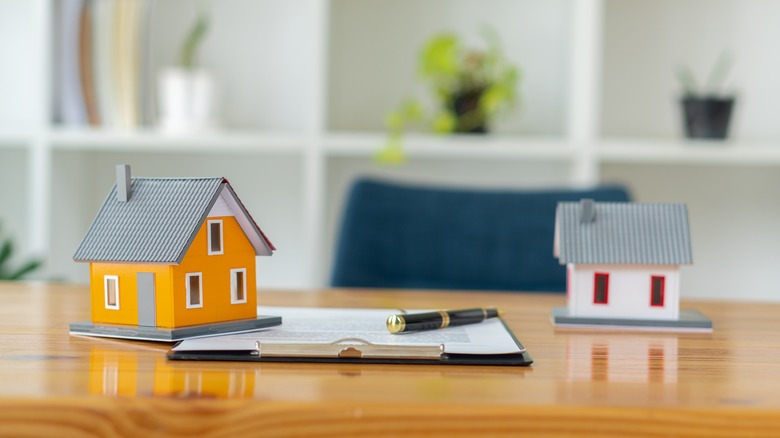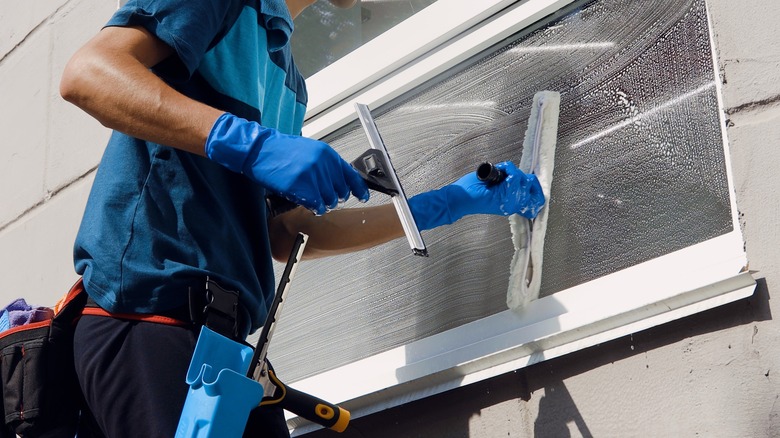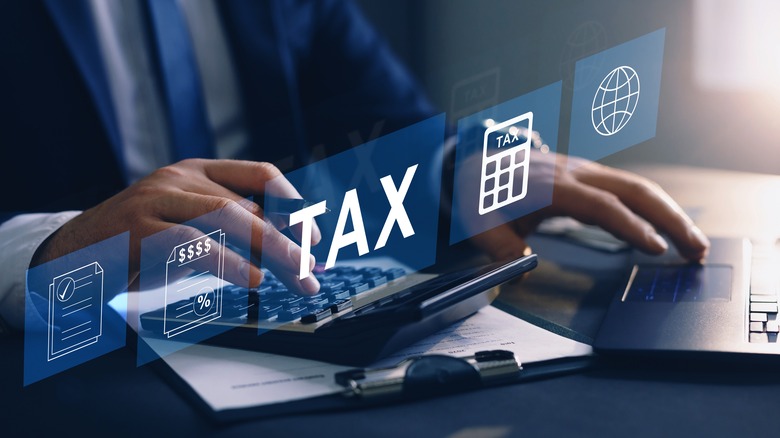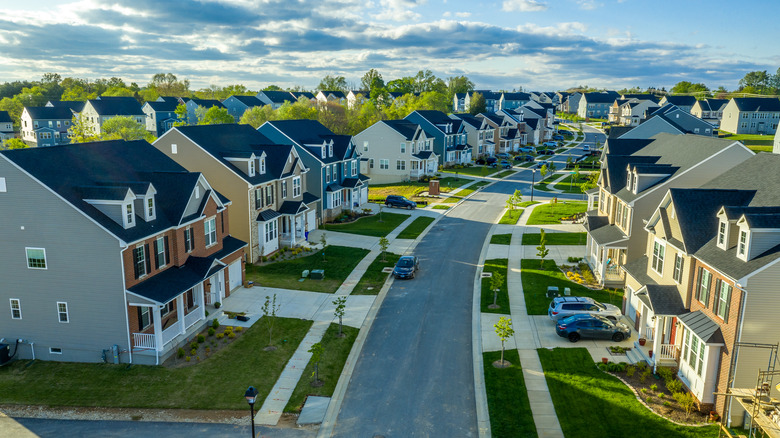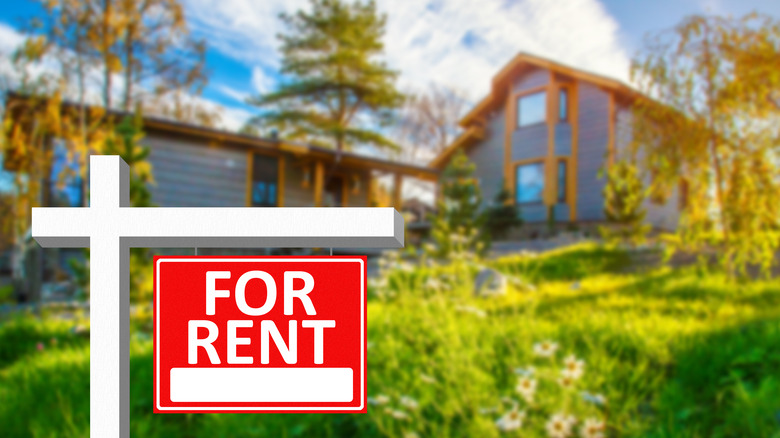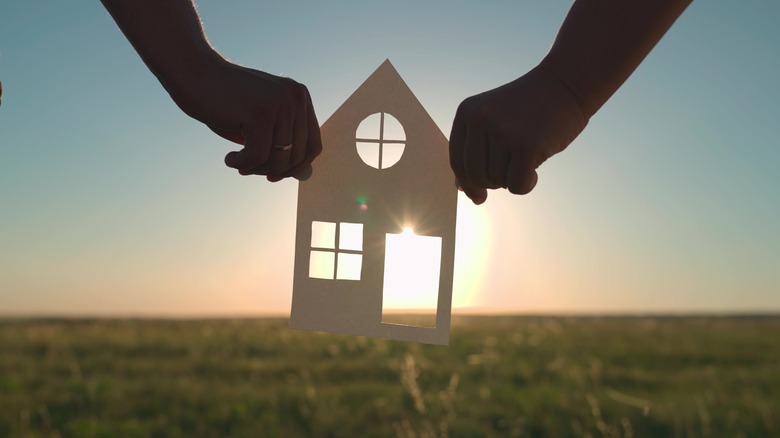The Pros And Cons Of Buying A Second Home
Buying a second home can be a great addition to your overall financial holdings. Real estate has often been the asset of choice for some of the wealthiest investors in the world, but this isn't the only reason to consider purchasing a second home while maintaining your first. Owning multiple properties allows you to create rental income or profits from a resale opportunity, and structured as a fiscal-first opportunity, investing in real estate is a strong option for growing wealth (via Investopedia).
Yet, many property buyers invest in a second home in order to create a getaway for their families or as a means of reducing already stressed budgetary considerations in certain circumstances. For instance, instead of paying rent on an apartment for a child in college, purchasing a property can potentially lower the outgoing expense each month and give you a financial asset to fall back on at the end of these collegiate years.
While there are many perks to owning multiple properties, this approach to wealth management isn't without potential setbacks as well. However, weighing the benefits and sticking points of this particular property ownership brand can help you make a smart decision with your finances and portfolio when the time comes to augment it with a new property — or some other type of asset.
Maintenance costs are doubled
The first thing to remember about any home purchase is the ongoing cost of ownership. As an investment asset, real estate isn't like shares in a company that, if bought and held on to, won't incur any additional charges (aside from potential tax liabilities from dividends or sales). In addition, maintenance in a home is different (via U.S. News & World Report). You'll need to mow the lawn, keep the property furnished and powered, and more.
Adding another property to your asset holdings means a second set of routine maintenance costs that you already pay for in your primary residence. This can add up to a significant financial responsibility besides the monthly mortgage payments that you'll be responsible for. Bankrate notes that many home buyers aren't prepared to handle the impact of these added financial drains. Taking stock of your current financial circumstances and having a candid conversation with yourself or your partner can help you gain a greater sense of the burden that this choice brings.
If you're using the property as an investment opportunity to resell or create income, the fiscal considerations are perhaps even more important — you might accept a net loss on a vacation rental home that provides you with a massive upside. An investment property is purchased entirely to generate capital, not hemorrhage it. Getting the financials right is an essential first step, and if the math is wrong, it can signal the need to abandon the approach altogether.
Taxes, insurance, and mortgage payments are amplified too
In addition to the ongoing maintenance and upkeep costs that you'll have to bear after purchasing a new home, there is a natural addition to your overall mortgage payments and property tax burden.
A second mortgage will add hundreds (or thousands) of dollars each month to your outgoing expenses, with the average mortgage payment costing American homeowners $2,064 each month on a 30-year fixed option, according to Business Insider. This may be significantly greater (or reduced) based on the down payment that you bring to the equation and the property value of the new purchase.
Second homes are different in function and form than primary residences, but this doesn't make them any different in the financial math that remains at play. Managing your mortgage payments continues to be an essential feature of homeownership, whether you're speaking of your sole property or one of many in a portfolio of real estate assets. In addition to the mortgage payments, property taxes come along as an added expense that you can't ignore. USA Today reports that property taxes average 1.1% of the home's assessed value, though this will vary state by state.
Setting down roots in a new place can be immensely advantageous
While the financial side of multiple property ownership may be a little bleak, homeowners' benefits are immense, and this is twofold for those adding a second home to their holdings. First, many families love vacationing in a beach town near their primary residence or even crossing the country to spend their summer holidays on the opposite coast. Owning a property in your favorite area upstate, along the coast, or anywhere else that makes you happy can give you a truer sense of home in this secondary space (via U.S. News & World Report).
Making a vacation special is all about the little things. Purchasing a second property in your favorite place away from home allows you to furnish the place with your own style and belongings. It helps you become a true community member and feel more at home in this new environment. Purchasing a second house is also a great way to prepare for a move in retirement, transitioning from the nine to five grind to a vacation-first lifestyle.
Renting out a second property can generate significant income
Many buyers consider adding a second home (or many additional properties) to their overall ownership in the real estate space as a means of generating monthly income for themselves and their families. Real estate income is particularly valuable because the property market has shown strength through the decades. Likewise, iPropertyManagement reports that rent prices have increased at an annualized rate of 8.86% since 1980, making the prospect of continually increasing income potential a significantly achievable reality.
This investment offers multiple avenues of benefit as well. Not only can you create a positive financial swing in terms of the income generation and required outgoing payments over time, building equity in the property throughout the process, but ownership provides many more benefits for the long term.
Selling the home later on will give you both the years of rental income as a means of deflecting the cost to purchase back equity from your lender as well as an inflated resale value by nature of the real estate market's trending price model. Over time, many real estate investors end up using their investment properties as a way to leverage greater financial fluidity, exponentially increasing their portfolio's holdings and value in short order.
It can come at a cost, but the benefits are substantial
Again, owning a second home isn't for everyone; some significant challenges come with this venture — namely, those within the financial realm. However, if the fiscal math works out in your favor, or you are willing to pay out additional capital to gain access to the other benefits that a second house can provide, then this is a great option for you and your family.
Investing in real estate as a purely fiscal endeavor can net you significant returns over the long term and in collecting monthly rental income (via Investopedia). Of course, investments in this space are less liquid than those in the stock market or other segments, but the earnings potential and stability are something to be marveled at.
Alternatively, purchasing a property specifically to use the space yourself can be a great option for those who want to feel more at home in their favorite destination away from a primary residence. Buying a second home is an investment in your future in many ways, and it can serve as a years-long addition that solves your vacation needs or houses an adult child away at college. The potential upside is enormous for those considering a second home purchase opportunity. Squaring the financials and added burden of the transaction with the benefits you stand to enjoy is crucial, though.
